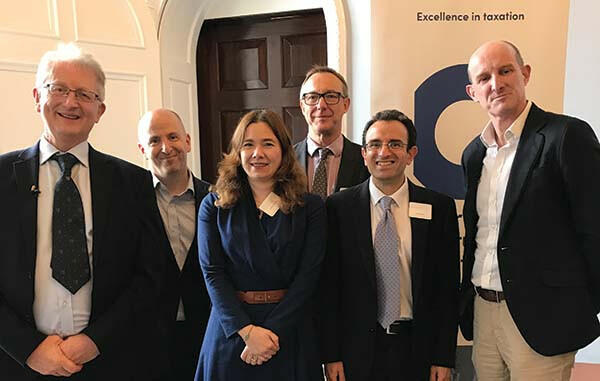Retail giants clash in online sales tax debate

Panellists clashed over how complex an online sales tax (OST) would be and on whom the burden of business rates falls, during a lively debate hosted by CIOT and the Institute for Fiscal Studies (IFS) in Central London on 10 May.
Speakers from Kingfisher plc (in favour of an OST) and eBay UK (against) were joined by a senior IFS economist and a leading indirect tax practitioner for the first ‘in person’ debate the two institutes have held in London since 2019. It was also livestreamed to an online audience who provided many of the questions put by the chair, CIOT President Peter Rayney.
Introducing the debate, IFS Director Paul Johnson noted that the government is currently exploring the idea of an OST via a consultation, and that Treasury officials were present at the debate ‘in listening mode’ to hear contributions and views.
Stuart Adam of IFS was concerned at inevitable complications and distortions with an OST. He doubted that an OST will raise enough to facilitate a significant easing of business rates unless it has a high rate and/or broad base. He thought one effect would be higher prices for online goods. Other likely effects include lower wages and fewer jobs at online retailers, and lower rents for warehouses, with rises for high street premises.
Nick Lakin of Kingfisher said an OST was right for society. He praised the ‘retail revolution’ of online shopping but argued that HMRC must adapt the tax system in response. Business rates are, he said, an analogue system in a digital age.
Alasdair McGowan of eBay argued for reform of business rates but against an OST. He said that hundreds of thousands of UK SMEs use eBay to start and grow their business, and nearly half of sellers on the marketplace have their own ‘physical presence’. These sellers contribute to the local tax base and are ‘real people’ entrepreneurs who are just as worthy of support as bricks-and-mortar retailers.
Gabby Donald, of KPMG LLP, and the chair of CIOT’s Indirect Taxes Committee, cautioned HMRC against rushing ahead with an OST, calling for ‘deep thinking’, because there are risks of unintended consequences. She identified many unanswered questions about the potential tax, including whether it would try to capture foreign firms selling into the UK.
For a fuller report on the debate or to watch a recording: tinyurl.com/OSTX22


